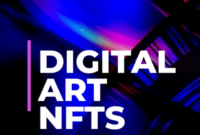bbc.towzdog.com – Ethereum Blockchain Development: A Deep Dive into the Future of Decentralization Ethereum blockchain development is transforming the way we interact with technology, finance, and even governance. As one of the most prominent platforms in the blockchain space, Ethereum provides developers with the tools needed to create decentralized applications (dApps) and smart contracts. This article will explore the intricacies of Ethereum blockchain development, its benefits, trends, and how it is shaping various industries.
What is Ethereum?
The Foundation of Ethereum
Ethereum is an open-source blockchain platform that enables developers to build and deploy decentralized applications. Unlike Bitcoin, which is primarily a cryptocurrency, Ethereum supports complex programmable contracts known as smart contracts. These contracts automatically execute transactions when specific conditions are met, making them a powerful tool for a range of applications.
Key Components of Ethereum
- Smart Contracts: These are self-executing contracts with the terms of the agreement directly written into code. They operate on the Ethereum Virtual Machine (EVM), which ensures consistent execution across the network.
- Ether (ETH): The native cryptocurrency of the Ethereum platform, used to pay for transaction fees and computational services on the network.
- Ethereum Virtual Machine (EVM): The runtime environment for executing smart contracts, enabling developers to build and deploy applications without needing to worry about the underlying infrastructure.
- Decentralized Applications (dApps): Applications that run on the Ethereum blockchain, providing services without a central authority, ensuring greater transparency and security.
- Tokens and Standards: Ethereum supports various token standards, such as ERC-20 and ERC-721, allowing developers to create fungible and non-fungible tokens (NFTs) easily.
The Advantages of Ethereum Blockchain Development
Why Developers Choose Ethereum
Ethereum blockchain development offers numerous advantages that attract developers and businesses alike:
Robust Ecosystem
Ethereum boasts a vibrant ecosystem with thousands of active developers, projects, and resources. This extensive community support means that developers can find tutorials, documentation, and forums to assist them in their journey.
Flexibility and Customization
The flexibility of Ethereum allows developers to create tailored solutions for various industries, from finance to gaming. This adaptability is essential for businesses looking to leverage blockchain technology to enhance their operations.
Enhanced Security
Security is paramount in blockchain technology, and Ethereum provides a highly secure platform. The decentralized nature of Ethereum means that data is not stored in a single location, reducing the risk of hacks and fraud.
Getting Started with Ethereum Blockchain Development
Setting Up Your Development Environment
To dive into Ethereum blockchain development, you’ll need to set up a suitable environment. Here’s how to get started:
Prerequisites
- Install Node.js: This is essential for running JavaScript tools required for Ethereum development.
- Get Truffle Suite: Truffle is a widely-used development framework that simplifies the process of building and deploying smart contracts.
- Install Ganache: This personal blockchain allows you to deploy contracts and run tests locally.
- Use Metamask: A browser extension that acts as a wallet for managing your Ether and interacting with dApps.
Current Trends in Ethereum Blockchain Development
The Transition to Ethereum 2.0
One of the most significant developments in the Ethereum ecosystem is the transition to Ethereum 2.0, which aims to enhance scalability, security, and sustainability. This transition involves moving from the Proof of Work (PoW) consensus mechanism to Proof of Stake (PoS).
Key Features of Ethereum 2.0
- Sharding: This technique divides the blockchain into smaller parts, or shards, which allows for parallel processing of transactions. This significantly increases the network’s capacity and speed.
- Beacon Chain: The Beacon Chain coordinates the network and manages validators. It plays a critical role in Ethereum’s PoS system.
- Staking: Users can stake their ETH to help secure the network and earn rewards in return. This incentivizes participation in the network’s security and governance.
The Rise of Decentralized Finance (DeFi)
Decentralized Finance (DeFi) is one of the most impactful trends emerging from Ethereum blockchain development. DeFi applications allow users to conduct financial transactions without intermediaries, making finance more accessible and efficient.
- Lending and Borrowing: Platforms like Aave and Compound allow users to lend their assets and earn interest or borrow against their holdings.
- Decentralized Exchanges (DEXs): Protocols such as Uniswap and SushiSwap enable users to trade cryptocurrencies directly from their wallets, maintaining full control over their assets.
- Yield Farming: Users can earn rewards by providing liquidity to various DeFi platforms, maximizing their returns on investment.
Use Cases of Ethereum Blockchain Development
Industries Transforming with Ethereum
Ethereum’s capabilities extend beyond finance and into various sectors:
Supply Chain Management
Ethereum can improve transparency and traceability in supply chains. By recording every transaction on the blockchain, stakeholders can track products from origin to delivery, ensuring authenticity and reducing fraud.
Healthcare
In healthcare, Ethereum can securely store patient records and enable secure sharing among authorized parties. This can enhance patient privacy while allowing healthcare providers to access vital information quickly.
Gaming and NFTs
The gaming industry has embraced Ethereum for developing dApps and creating Non-Fungible Tokens (NFTs). These tokens allow for the ownership of unique digital assets, such as in-game items, art, and collectibles.
Conclusion
Ethereum blockchain development is at the forefront of the technological revolution, offering innovative solutions across various industries. Its flexibility, security, and growing ecosystem make it a preferred choice for developers and businesses looking to harness the power of blockchain technology.
As Ethereum continues to evolve with the transition to Ethereum 2.0 and the growth of DeFi, it is essential for developers and stakeholders to stay informed and adapt to these changes.
For further reading on blockchain technology, you can visit CoinDesk, a trusted source for the latest news and insights in the cryptocurrency space.
By engaging with Ethereum blockchain development, you become part of a movement that is shaping the future of technology, finance, and beyond.




